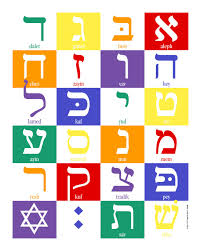
A young child singing himself to sleep at night to the letters of the alef bais is nachas to parents’ ears. A first- or second-grade child who is struggling to learn the letters and nekudos is a source of concern and worry. Why is it that some children find it more difficult to become fluent in kriah (Hebrew reading) than others?
Actually, the development of reading (and kriah) skills is a well-researched and understood topic. A simple understanding of the wondrous brain that Hashem created sheds tremendous light on the kriah process. Basically, beginning readers process written text with the frontal lobe of their brain. The frontal lobe is slow, analytical, and requires conscious effort. That is why beginning readers will often whisper what they are reading quietly to themselves before saying it out loud. As kriah skills are mastered, kriah processing moves to the occipital lobe in the rear of the brain. The occipital lobe processes written text instantly without conscious thought. This shift is what produces kriah fluency.
The wiring of some children’s brains does not promote this shift easily. As a result, they have trouble learning different kriah skills and their kriah is not fluent. However, even children without any so called “wiring glitches” sometimes are not fluent in their kriah. Once any peripheral issues such as hearing, vision, or attention are ruled out, the most likely cause of weak kriah lies in the way it was taught. Kriah fluency necessitates instructional techniques and methodologies that promote the processing shift from the frontal lobe to the occipital lobe. This is the key to fluent kriah that is often overlooked.
It is a mistake to think that once a child has mastered a letter, nekuda, or grammatical skill that he no longer needs to practice it. Each kriah skill needs to be overlearned. The definition of overlearning is reviewing a skill again and again, even after it was mastered. This review is continued until the skill is totally automatized. Overlearning fosters the aforementioned processing shift in the brain. Unfortunately, kriah teachers often rush the process too much and introduce new skills before previously learned skills are automatized. As a result, children are trying to process too many skills simultaneously with the frontal lobe of the brain, and their kriah is not fluent.
The solution is actually quite simple. Slow down; the siddur party can wait! You do not need glitzy or cute worksheets, and you do not need to represent the letters in mnemonic shapes. (While this is contrary to what is commonly espoused by some educators – and I am a special ed. teacher myself! – the opinion of many gedolei Yisrael is that the alef bais should not be made frivolous under normal circumstances. For example, see With Hearts Full of Love by Harav Mattisyahu Salomon, shlita, page 243.) Instruction needs to be slower, with more review of basic letter/nekuda combinations. This review needs to be done in an active way with the children actually reading written text (not only singing songs or passively listening to others read). Many activities that mechanchim and parents can use to actively review kriah skills can be found on the kriah page of my website (www.thekeytotorah.com/kriah-page.html ).
What an easy fix. This would eliminate a large percentage of the kriah issues of children who do not have any language processing disorders. Children who do have language processing issues will also gain tremendously from slower instruction. They might still need more intensive remediation, but they will be further ahead than they would be in a faster-paced class.
Some might argue that slower kriah instruction will delay the start of a school’s Chumash program. Maybe. But what is the rush? Kriah is the foundation of all future learning, and the time that is invested in building a solid foundation is an investment that will more than pay for itself in the long-run, both quantitatively and qualitatively.
Rabbi Yaakov Aichenbaum teaches kriah, Chumash and Gemara to students with learning difficulties in Baltimore as well as to online students around the world. He also presents professional development programs for mechanchim in schools and national conferences. He welcomes your feedback at yaakov@ybm.edu or 410-358-0526.






